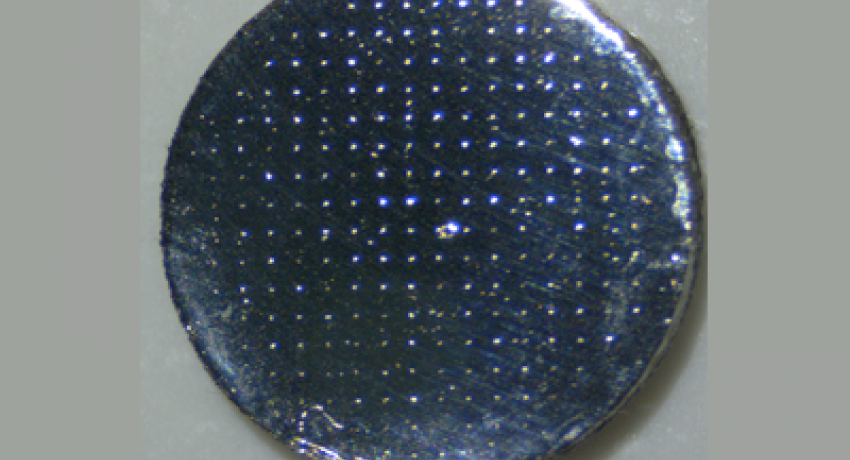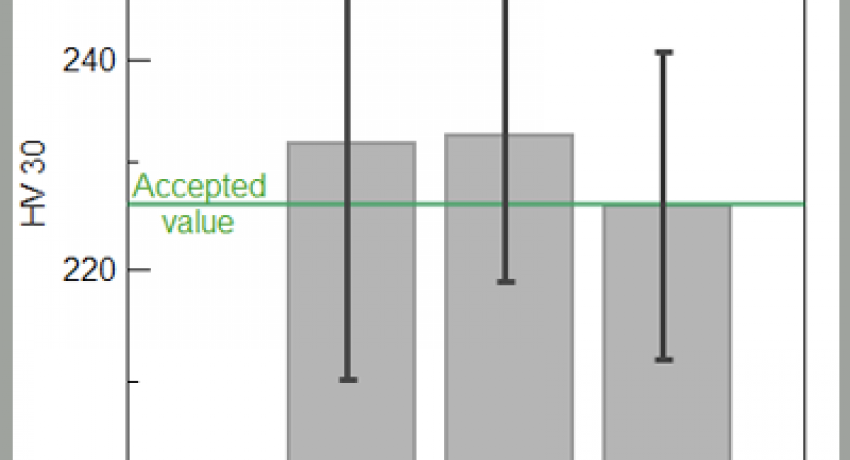Micro-hardness testing permits measuring the hardness of a material on a microscopic scale. The Qness Q60 A+ microindenter is a fully automated system with quick and precise positioning relative to the sample. The machine is equipped with three different magnification lenses (10X, 40X, and 65X) and three indenters (Vickers, Knoop and Brinell), which facilitate hardness measurements across a broad range of materials. Samples with varying heights and tilts can be indented at the same time with the Qness CAS sample holders. Additionally, the indenter can be adapted to the respective contour of the test sample such that different material regions (i.e. e.g. layers) can be tested precisely. Additionally, users can obtain the hardness distribution across a segment or whole plane of the test sample using the 2D/3D mapping tool.
With the Qness Q60 A+ microindenter, we are able to conduct the following hardness tests:
Sample polished to using 0.3 µm colloidal silica, showing the array of 200+ Vickers indents. The microindents were made using 0.3 kg of force using a 10 s indent duration (HV 30/10 test).
Plot showing the mean and standard deviation of the HV 30 hardness measurement for 316 stainless steel polished to different surface roughnesses. The 0.3 micron colloidal silica step results in the most accurate result (i.e. closest to the accepted 316 hardness value). The precision of the measurements, as noted by the error bars showing the standard deviation, are similar for the samples polished using 1,200 grit SiC sandpaper and 0.3 micron colloidal silica, and significantly better compared to the error for the 600 grit sample.


